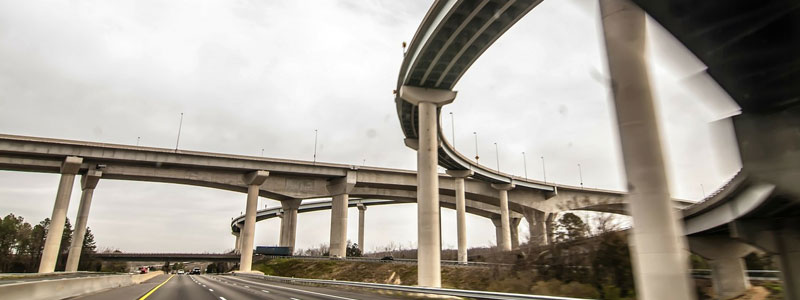5 Tips for Driving on Evansville Highways

Whether you’ve got a 45-minute commute or just need to run a few errands, chances are you drive on one of Evansville’s highways at least once a day. Driving at high speeds may be convenient, but highway accidents remind us that convenience comes with risks. To stay safe on Evansville’s highways, keep the following tips in mind.
1. Drive Defensively

Safe driving habits start with a calm attitude. Defensive driving is more than just being courteous to others; it’s about being aware of their habits and responding proactively. A few things to watch out for on the road are:
- Drivers who tailgate other vehicles — let them pass as quickly as possible
- Drivers who don’t use turn signals — anticipate when they might change lanes and avoid driving next to them
- Slow-moving cars or trucks in the distance — make a plan on how to pass them before coming right up behind them
In addition, the Indiana Department of Transportation recommends avoiding eye contact with angry drivers, and ignore any gestures they make. Make every effort to get out of their way or follow them at a safe distance.
2. Keep an Eye on What’s Behind You

Spend time looking in the rear view mirror as well as the road ahead. This is especially important on highways with more than two lanes, because drivers have to watch for cars from both sides in addition to the ones behind and in front of them.
Having a good idea of what cars and trucks are catching up to you will also help you estimate when you should change lanes to best allow those behind you to pass. That way, fast-moving cars won’t be trapped into tailgating you, which is dangerous for both cars involved.
3. Maintain a Constant Speed

Not only do other drivers find it aggravating when you speed up as they try to pass, it can also be dangerous. Two cars driving at the same speed should follow one another in one lane, otherwise traffic can pile up behind them, creating a “wolf pack.” Wolf packs are groups of tightly clustered cars traveling together on the highway; the short following distances and inflexible speed puts drivers at much higher risk of accident than normal highway driving.
You can help avoid creating or joining a wolf pack on the highway by slowing down, allowing others at similar speeds to pass you, and resuming your previous speed when traffic has cleared.
4. Don’t Drive Impaired

Beyond driving while intoxicated, many other conditions can impair drivers from making reasonable decisions and driving safely.
Distracted driving is a form of impairment. Leave your phone in your pocket if you can, or if someone else is with you, let them drive. Your full attention should be on the road, not on what’s happening inside the car.
Driving drowsy is also highly dangerous for both you and everyone around you. If you can avoid it, don’t drive without getting plenty of rest. You can help yourself stay alert in drowsy situations by keeping the temperature cool and turning off cruise control. Especially on long drives, stop at gas stations or rest areas to walk around and get your blood moving.
5. Watch Your Speed

We get it, no one wants to get on the open road and cruise at a cool 55 miles per hour, but speed limits are designed to decrease the risk of highway accidents. Maintaining a safe speed gives you more time to react to what happens in front of you and lowers the kinetic energy of your car, which can reduce the severity of an accident.
Help from an Evansville Car Accident Attorney
Even safe drivers can get involved in a highway accident. If you’ve been hurt in an accident and don’t know what to do, contact the lawyers at Hensley Legal Group today. Our Evansville car accident lawyers will handle all the paperwork and communication with the insurance company and may be able to strengthen your case to get the compensation you deserve. We won’t be paid unless you are, and your consultation is free. Give us a call today.